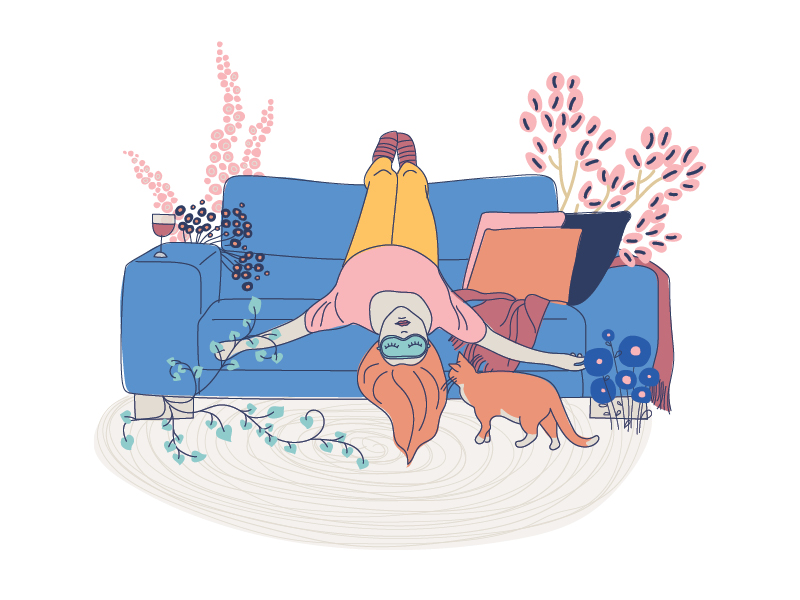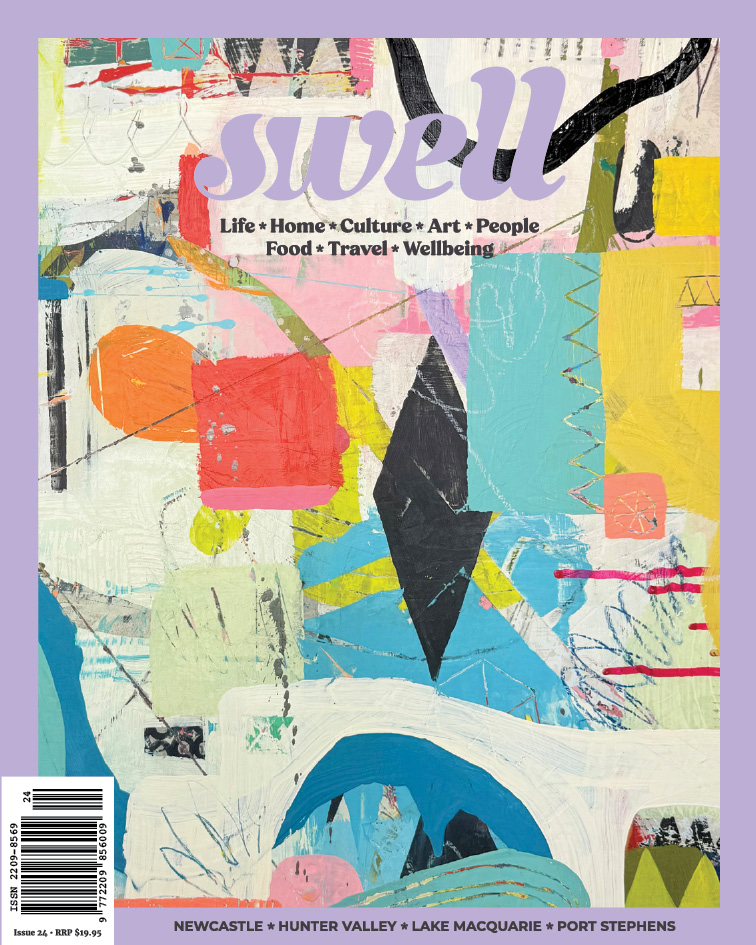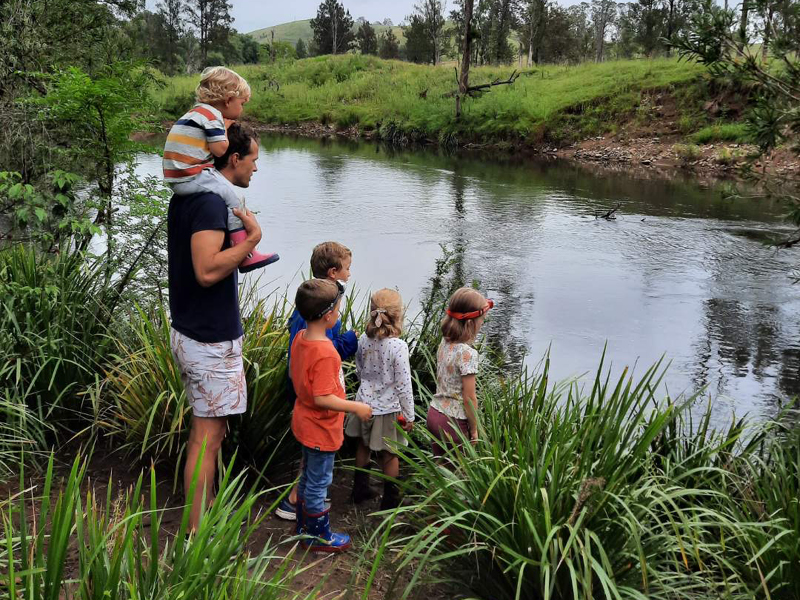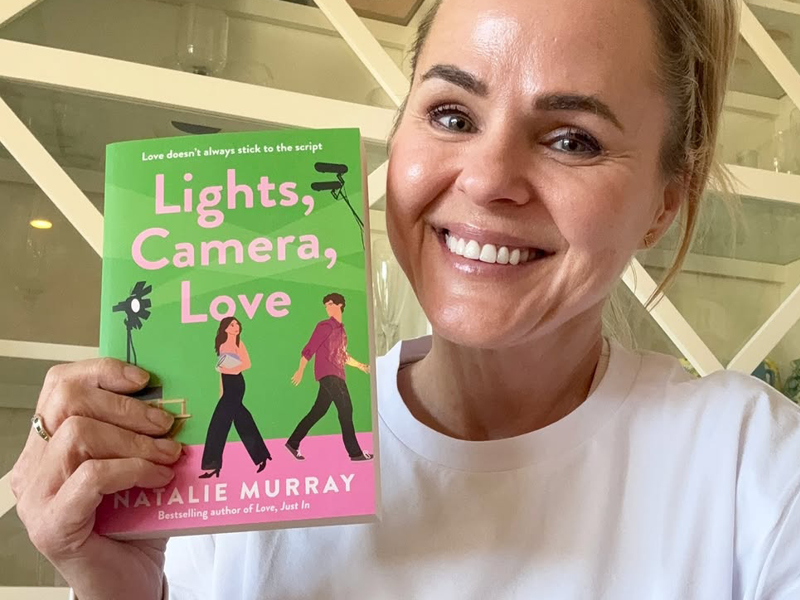They say that if you want to be happy, all you need is a positive outlook. While that’s not bad advice, it’s not a healthy response to every situation. Because life’s a bit topsy turvy – it oscillates from mundane to amazing, to downright awful and back to normal again. The past year, for many has been downright awful. So much so that even the mundane aspects of pre-pandemic life have taken on a novel level of delight. Where just a few short years ago we longed for weeks on end to sit at home and do nothing, now we see life through a new lens of appreciation.
On top of the pandemic, this past year has thrown a few extra challenges my way. Every time I thought I’d reached a place of some normality again, I was smacked around the head a little more – there was the devastation of a childhood cancer diagnosis in my immediate family, the heartbreak of closed state borders and the passing of a loved one. On top of it all, I recently had three surgeries in just a few months (and more than enough hospital sandwiches thank you very much).
Not even my psychologist could sugarcoat it for me: we both agree it’s a year I’ll always look back on with profound sadness. Yet, somehow, I have come out the other end in much the same way we are seeing people abroad come through the pandemic: with a renewed optimism for life. This has caused me to reflect on why I feel strangely rejuvenated, and how we can all grow through hard times.
“…what I have come to realise is that being positive in the face of tragedy is often a very unhelpful response. There is a term psychologists use to describe positivity that’s more damaging than good: toxic positivity.”

Now when I say grow, I do not mean being relentlessly productive, learning a new language or reading a thousand books. This was how we first responded to the pandemic: “Finally… time to become the upskilled human I’ve always wanted to be!” In fact, what I have come to realise is that being positive in the face of tragedy is often a very unhelpful response. There is a term psychologists use to describe positivity that’s more damaging than good: toxic positivity. This is a belief in being relentlessly positive, even when things are difficult. The problem with avoiding everything negative is that we become unable to process difficult emotions.
Author and organisational psychologist Adam Grant explained the problem with this mode of thinking in a recent TED Talk on languishing. “Cultures of toxic positivity are full of pressure to show constant enthusiasm,” he says. “Healthy cultures offer freedom to express unpleasant emotions. You can say you’re languishing, depressed, anxious or burned out – and you feel supported rather than judged.”
If you have ever been in the thick of a devastating life event and had someone tell you to “focus on the positives,” you will know what Adam is referring to. While these platitudes are well-intentioned, they reject the very real pain you’re experiencing. This dismissal can make you feel guilty or ashamed for being sad, when in fact that is a completely natural response to many life events. As a result, we are less able to open up to others, and we beat ourselves up for ‘not coping’. So, I’m inviting you to hold a pity party for yourself (and make sure there’s plenty of cake – you’ve earned it).
“Healthy cultures offer freedom to express unpleasant emotions. You can say you’re languishing, depressed, anxious or burned out – and you feel supported rather than judged.”
You see, it wasn’t until I had my own pity party that I was able to deal with the ever-growing pile of heavy things happening around me. There came a point where I had to stop pushing myself any more than was necessary to get by each day. I didn’t say yes to unnecessary work and social commitments, I let my partner step in to help me with home and work tasks, and I stopped reading non-fiction books and listening to business podcasts (there was just no brain space for it). That created space to just be, which allowed me to accept what was happening. And only then did I start coping better and stop spontaneously crying in public.
The link between making space for negative emotions and coping is something that researchers are increasingly interested in. In one study that spanned ten years, Stanford researchers looked at avoidance as a coping strategy. They found that people who cope by ignoring negative feelings are more likely to experience depression. Then last year, researchers at Swansea University conducted a study to determine the impact of the pandemic on the wellbeing of participants. They found that participants who were able to accept that life will throw difficulties their way were better at coping with lockdowns and felt better prepared to handle future challenges. This ability to endure difficult thoughts and emotions is called psychological flexibility.
But how do you sit with and endure difficult emotions? It’s a pretty vague concept, right? You might try journaling or talking with a loved one. Depending on what’s happening in your life, you may also need a trained mental health professional to help you work through these feelings or any trauma you’ve experienced and find what works for you.
“You see, it wasn’t until I had my own pity party that I was able to deal with the ever-growing pile of heavy things happening around me.”
I came across a helpful strategy in Clare Bowditch’s memoir Your Own Kind of Girl. Having been through her own struggles with grief and crippling anxiety, Clare uses a technique created by Dr Claire Weekes called FAFL: face, accept, float, let time pass. The framework encourages you to face the emotion by accepting its presence and letting it pass through you. The way I understand it is that you’re trying to float above the emotion as it passes, so you don’t feel as connected with it or tempted to suppress it. It’s a decades-old technique that’s still relevant, because when big, intense feelings are happening, it’s not always possible to distract yourself by breathing or trying to relax (even though these things can also be helpful tools). Over time, Clare says this technique taught her how to let go of anxious and panic-inducing thoughts, rather than holding on to them. But, of course, it takes practice.
How you crawl through will depend on your individual situation. But there is one thing I want you try: let yourself wallow if that’s what you need – without feeling guilty about being upset or for taking a few mental health days off work. There is a time and place for positivity, and the midst of a crisis is not that time. That’s because when something really challenging happens, there are generally lots of little steps between the situation and some kind of resolution. Those steps could be anything from medical appointments to hard conversations or solving seemingly impossible money problems. By giving yourself time to come to terms with the situation, you’ll be better placed to pick yourself up off the floor, call last drinks at the pity party and take those baby steps forward.
“Whether we like it or not, hard times are just part of the human experience. No-one on this big, beautiful planet is immune from grief, sadness, and sickness.”
And if you find yourself wanting to tell someone to ‘focus on the positives’ or ‘look on the bright side,’ consider whether they are ready for that yet. Maybe what they need is someone to acknowledge that it’s normal to experience what they’re feeling. Perhaps they need you to support them as they take that first baby step forward. Or maybe they need an offer to babysit their kids, so they have space to work through their feelings.
Whether we like it or not, hard times are just part of the human experience. No-one on this big, beautiful planet is immune from grief, sadness, and sickness. The silver lining is that once you have truly been down in the dumps and then put yourself back together, even the more mundane aspects of life feel new and exciting. Once the pain ebbs, there’s a lightness that wasn’t there before – because the ordinary bits of life take on a new lustre.
As we look forward to re-emerging from the pandemic – however uncertain that re-emergence may be – we’ll be doing so with a newfound sense of appreciation for things we had all along. And I am not just talking about dancing at weddings, flying to new places and coffee dates; I am talking about that resilience you’ve always had in you, but didn’t give yourself credit for. Now you’ve held hands with it, know that it’s always there for you when things get a little topsy turvy.






